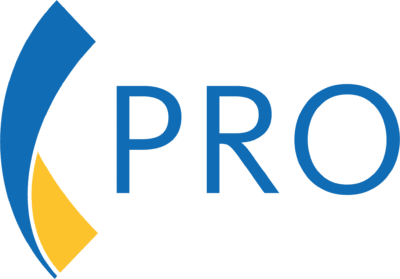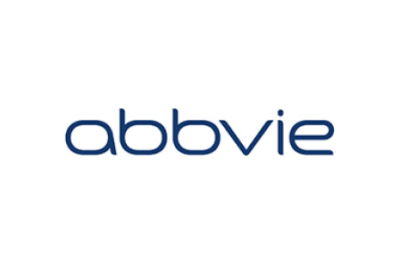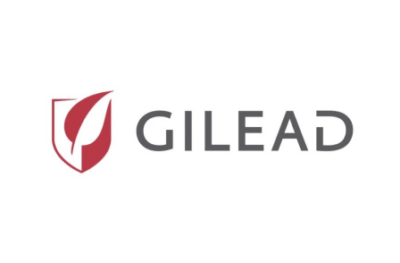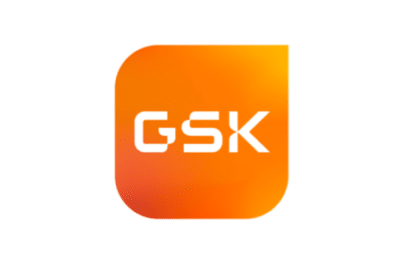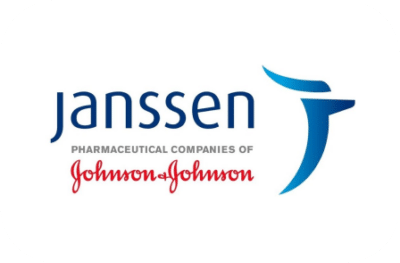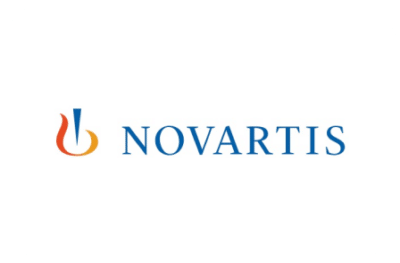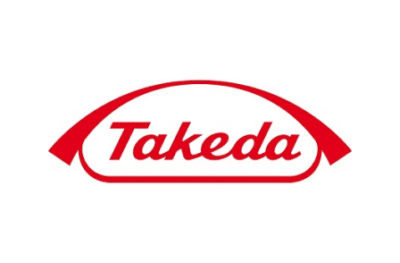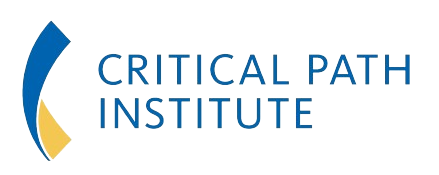| Approaches to the Assessment of Clinical Benefit of Treatments for Conditions That Have Heterogeneous Symptoms and Impacts: Potential Applications in Rare Disease | Value in Health | 2023 | Murray LT, Howell TA, Matza LS, Eremenco S, Adams HR, Trundell D, Coons SJ | https://doi.org/10.1016/j.jval.2022.11.012 |
| Best Practice Recommendations for Electronic Patient-Reported Outcome (ePRO) Dataset Structure and Standardization to Support Drug Development | Value in Health | 2023 | Hudgens S, Kern S, Barsdorf AI, Cassells S, Rowe A, King-Kallimanis BL, Coon C, Low G, Eremenco S | https://doi.org/10.1016/j.jval.2023.02.011 |
| Best practice recommendations: user acceptance testing for systems designed to collect clinical outcome assessment data electronically | Therapeutic Innovation & Regulatory Science | 2022 | Gordon S, Crager J, Howry C, Barsdorf A, Cohen J, Crescioni M, Dahya B, Delong P, Knaus C, Reasner D, Vallow S, Zarzar K, Eremenco S, on behalf of the Patient-Reported Outcome (PRO) Consortium and eCOA Consortium at the Critical Path Institute | https://doi.org/10.1007/s43441-021-00363-z |
| Comparability of a provisioned device versus bring your own device for completion of patient-reported outcome measures by participants with chronic obstructive pulmonary disease: qualitative interview findings | Journal of Patient-Reported Outcomes | 2022 | Newton L, Knight-West O, Eremenco S, Hudgins S, Crescioni M, Symonds T, Reasner DS, Byrom B, O’Donohoe P, Vallow S on behalf of the Patient-Reported Outcome Consortium and the Electronic Clinical Outcome Assessment Consortium | https://doi.org/10.1186/s41687-022-00492-5 |
| Comparing patient global impression of severity and patient global impression of change to evaluate test–retest reliability of depression, non-small cell lung cancer, and asthma measures | Quality of Life Research | 2022 | Eremenco S, Chen WH, Blum SI, Bush EN, Bushnell DM, DeBusk K, Gater A, Nelsen L, Coons SJ, on behalf of the PRO Consortium’s Communication Subcommittee | https://doi.org/10.1007/s11136-022-03180-5 |
| Non-Small Cell Lung Cancer Symptom Assessment Questionnaire (NSCLC-SAQ): measurement properties and estimated clinically meaningful thresholds from a phase 3 study | JTO Clinical and Research Reports | 2022 | Williams P, Burke T, Norquist J, Daskalopoulou C, Speck R, Samkari A, Eremenco S, Coons SJ | https://doi.org/10.1016/j.jtocrr.2022.100298 |
| Recommendations for the electronic migration and implementation of clinician-reported outcome assessments in clinical trials | Value in Health | 2022 | Romero H, DeBonis D, O’Donohoe P, Wyrwich K, Arnera V, Platko J, Willgoss T, Harris K, Crescioni M, Steele S, Eremenco S, on behalf of the Electronic Patient-Reported Outcome Consortium and the Patient-Reported Outcome Consortium | https://doi.org/10.1016/j.jval.2022.02.012 |
| Asthma Daytime Symptom Diary (ADSD) and Asthma Nighttime Symptom Diary (ANSD): measurement properties of novel patient-reported symptom measures | The Journal of Allergy Clinical Immunology: In Practice | 2021 | Gater A, Nelsen L, Coon C, Eremenco S, O’Quinn S, Khan A, Eckert L, Staunton H, Bonner N, Hall R, Krishnan J, Stoloff S, Schatz M, Haughney J, Coons SJ | https://doi.org/10.1016/j.jaip.2021.11.026 |
| Non-Small Cell Lung Cancer Symptom Assessment Questionnaire (NSCLC-SAQ): psychometric performance and regulatory qualification of a novel patient-reported symptom measure | Current Therapuetic Research | 2021 | Bushnell DM, Atkinson T, McCarrier K, Liepa A, DeBusk K, Coons SJ | https://doi.org/10.1016/j.curtheres.2021.100642 |
| Considerations for development of an evidence dossier to support the use of mobile sensor technology for clinical outcome assessments in clinical trials | Contemporary Clinical Trials | 2020 | Walton MK, Cappelleri JC, Byrom B, Goldsack JC, Eremenco S, Harris D, Potero E, Patel N, Flood E, Daumer M | https://doi.org/10.1016/j.cct.2020.105962 |
| Good practices for the translation, cultural adaptation, and linguistic validation of clinician-reported outcome, observer-reported outcome, and performance outcome measures | Journal of Patient-Reported Outcomes | 2020 | McKown S, Acquadro C, Anfray C, Arnold B, Eremenco S, Giroudet C, Martin M, Weiss D | https://doi.org/10.1186/s41687-020-00248-z |
| Why reinvent the wheel? Use or modification of existing clinical outcome assessment tools in medical product development | Value in Health | 2020 | Papadopoulos E, Bush EN, Eremenco S, Coons SJ | https://doi.org/10.1016/j.jval.2019.09.2745 |
| Assessing test-retest reliability of patient-reported outcome measures using intraclass correlation coefficients: recommendations for selecting and documenting the analytical formula | Quality of Life Research | 2019 | Qin S, Nelson L, McLeod L, Eremenco S, Coons SJ | https://doi.org/10.1007/s11136-018-2076-0 |
| Symptoms of Major Depressive Disorder Scale (SMDDS): performance of a novel patient-reported symptom measure | Value in Health | 2019 | Bushnell DM, McCarrier KP, Bush EN, Abraham L, Jamieson C, McDougall F, Trivedi M, Thase M, Carpenter L, Coons SJ, on behalf of the Patient-Reported Outcome Consortium’s Depression Working Group | https://doi.org/10.1016/j.jval.2019.02.010 |
| Development of a symptom-focused patient-reported outcome measure for functional dyspepsia: the Functional Dyspepsia Symptom Diary (FDSD) | American Journal of Gastroenterology | 2018 | Taylor F, Higgins S, Carson R, Eremenco S, Foley C, Lacy B, Parkman H, Reasner D, Shields A, Tack J, Talley N | https://www.ncbi.nlm.nih.gov/pmc/articles/PMC5770596/ |
| Informing the tolerability of cancer treatments using patient-reported outcome (PRO) measures: summary of an FDA and Critical Path Institute workshop | Value in Health | 2018 | Kluetz PG, Kanapuru B, Lemery S, Johnson LL, Fiero M, Arscott K, Barbachano Y, Basch E, Campbell M, Cappelleri JC, Cella D, Cleeland C, Coens C, Daniels S, Denlinger CS, Fairclough DL, Hillard JR, Minasian L, Mitchell SA, O’Connor D, Patel S, Rubin EH, Ryden A, Soltys K, Sridhara R, Thanarajasingam G, Velikova G, Coons SJ | https://doi.org/10.1016/j.jval.2017.09.009 |
| Literature review to assemble the evidence for response scales used in patient-reported outcome measures | Journal of Patient-Reported Outcomes | 2018 | Gries K, Berry P, Harrington M, Crescioni M, Patel M, Rudell K, Safikhani S, Pease S, Vernon M | https://doi.org/10.1186/s41687-018-0056-3 |
| Literature review to characterize the empirical basis for response scale selection in pediatric populations | Journal of Patient-Reported Outcomes | 2018 | Naegeli AN, Hanlon J, Gries KS, Safikhani S, Ryden A, Patel M, Crescioni M, Vernon M | https://doi.org/10.1186/s41687-018-0051-8 |
| Patient-Reported Outcome (PRO) Consortium translation process: consensus development of updated best practices | Journal of Patient-Reported Outcomes | 2018 | Eremenco S, Pease S, Mann S, Berry P, on behalf of the PRO Consortium’s Process Subcommittee | https://doi.org/10.1186/s41687-018-0037-6 |
| Response scale selection in adult pain measures: results from a literature review | Journal of Patient-Reported Outcomes | 2018 | Safikhani S, Gries KS, Trudeau JJ, Reasner D, Rudell K, Coons SJ, Bush EN, Hanlon J, Abraham L, Vernon M | https://doi.org/10.1186/s41687-018-0053-6 |
| Clinically meaningful outcomes in early Alzheimer disease: a consortia-driven approach to identifying what matters to patients | Therapeutic Innovation & Regulatory Science | 2017 | Ropacki MT, Hannesdottir K, Hendrix S, Gordon MF, Stephenson D, Coons SJ, Stern RA, on behalf of the Critical Path Institute’s Coalition Against Major Diseases and Patient-Reported Outcome Consortium Cognition Working Group | https://doi.org/10.1177/2168479016689712 |
| Development of a harmonized patient-reported outcome questionnaire to assess myelofibrosis symptoms in clinical trials | Leukemia Research | 2017 | Gwaltney C, Paty J, Kwitkowski VE, Mesa RA, Dueck AC, Papadopoulos EJ, Wang L, Feliciano J, Coons SJ | https://doi.org/10.1016/j.leukres.2017.05.012 |
| Development of the Diary for Irritable Bowel Syndrome Symptoms (DIBSS) to assess treatment benefit in clinical trials: foundational qualitative research | Value in Health | 2017 | Fehnel SE, Ervin CM, Carson RT, Rigoni G, Lackner JM, Coons SJ, on behalf of the Critical Path Institute Patient-Reported Outcome Consortium’s Irritable Bowel Syndrome Working Group | https://doi.org/10.1016/j.jval.2016.11.001 |
| Assessing asthma symptoms in adolescents and adults: qualitative research supporting development of the Asthma Daily Symptom Diary | Value in Health | 2016 | Gater A, Nelsen L, Fleming S, Lundy JJ, Bonner N, Hall R, Marshall C, Staunton H, Krishnan JA, Stoloff S, Schatz M, Haughney J, on behalf of the Patient-Reported Outcome Consortium’s Asthma Working Group | https://doi.org/10.1016/j.jval.2016.01.007 |
| Development of a patient-reported outcome instrument to assess complex activities of daily living and interpersonal functioning in persons with mild cognitive impairment: The qualitative research phase | Alzheimer’s & Dementia | 2016 | Gordon MF, Lenderking WR, Duhig A, Chandler J, Lundy JJ, Miller DS, Piault-Louis E, Doody RS, Galasko D, Gauthier S, Frank L, on behalf of the Patient-Reported Outcome Consortium’s Cognition Working Group | https://doi.org/10.1016/j.jalz.2015.04.008 |
| Development of a symptom-based patient-reported outcome instrument for functional dyspepsia: a preliminary conceptual model and an evaluation of the adequacy of existing instruments | The Patient—Patient-Centered Outcomes Research | 2016 | Taylor F, Reasner DS, Carson RT, Deal LS, Foley C, Iovin R, Lundy JJ, Pompilus F, Shields AL, Silberg DG | https://link.springer.com/article/10.1007%2Fs40271-016-0164-1 |
| Interpretation of verbal descriptors for response options commonly used in verbal rating scales in patient-reported outcome instruments | Quality of Life Research | 2016 | Mutebi A, Slack M, Warholak TL, Hudgens S, Coons SJ | https://link.springer.com/article/10.1007%2Fs11136-016-1333-3 |
| Interpreting change in scores on patient-reported outcome instruments | Therapeutic Innovation & Regulatory Science | 2016 | Coon CD, Cappelleri JC | https://doi.org/10.1177/2168479015622667 |
| Patient-centered research to support the development of the Symptoms of Major Depressive Disorder Scale (SMDDS): initial qualitative research | The Patient—Patient-Centered Outcomes Research | 2016 | McCarrier KP, Deal LS, Abraham L, Blum SI, Bush EN, Martin M, Thase ME, Coons SJ, on behalf of the PRO Consortium’s Depression Working Group | https://link.springer.com/article/10.1007%2Fs40271-015-0132-1 |
| Practical considerations for the use of clinical outcome assessments (COAs) in pediatric clinical research: examples from pediatric gastroenterology | Therapeutic Innovation & Regulatory Science | 2016 | Kovacs SM, Turner-Bowker DM, Calarco G, Mulberg AE, Paty J | https://doi.org/10.1177/2168479015621601 |
| Qualitative development and content validity of the Non–Small Cell Lung Cancer Symptom Assessment Questionnaire (NSCLC-SAQ), a patient-reported outcome instrument | Clinical Therapeutics | 2016 | McCarrier KP, Atkinson T, DeBusk K, Liepa A, Scanlon M, Coons SJ, on behalf of the Patient-Reported Outcome Consortium’s NSCLC Working Group | https://doi.org/10.1016/j.clinthera.2016.03.012 |
| Capturing patient-reported outcome (PRO) data electronically: the past, present, and promise of ePRO measurement in clinical trials | The Patient—Patient-Centered Outcomes Research | 2015 | Coons SJ, Eremenco S, Lundy JJ, O’Donohoe P, O’Gorman H, Malizia W | https://link.springer.com/article/10.1007%2Fs40271-014-0090-z |
| Considerations for requiring subjects to provide a response to electronic patient-reported outcome instruments | Therapeutic Innovation & Regulatory Science | 2015 | O’Donohoe P, Lundy JJ, Gnanasakthy A, Greene A | https://doi.org/10.1177/2168479015609647 |
| Optimizing electronic capture of clinical outcome assessment data in clinical trials: the case of patient-reported endpoints | Therapeutic Innovation & Regulatory Science | 2015 | Fleming S, Barsdorf AI, Howry C, O’Gorman H, Coons SJ, on behalf of the Patient-Reported Outcome (PRO) Consortium and ePRO Consortium at the Critical Path Institute | https://doi.org/10.1177/2168479015609102 |
| The Patient-Reported Outcome (PRO) Consortium: lessons learned along the path to PRO instrument qualification | Therapeutic Innovation & Regulatory Science | 2015 | Hayes RP, Blum SI, Gordon MF, Piault E, Burke LB, Slagle AF, Coons SJ | https://doi.org/10.1177/2168479014549858 |
| Patient self-report for evaluating mild cognitive impairment and prodromal Alzheimer’s disease | Alzheimer Research and Therapy | 2011 | Frank L, Lenderking WR, Howard K, Cantillon M | https://doi.org/10.1186/alzrt97 |
| The Patient-Reported Outcome (PRO) Consortium: filling measurement gaps for PRO endpoints to support labeling claims | Clinical Pharmacology & Therapeutics | 2011 | Coons SJ, Kothari S, Monz BU, Burke LB | https://doi.org/10.1038/clpt.2011.203 |
| Comparability of a provisioned device versus bring your own device for completion of patient-reported outcome measures by participants with chronic obstructive pulmonary disease: quantitative study findings | Journal of Patient-Reported Outcomes | 2022 | Stacie Hudgens, Louise Newton, Sonya Eremenco, Mabel Crescioni, Tara Symonds, Philip C. G. Griffiths, David S. Reasner, Bill Byrom, Paul O’Donohoe, Susan Vallow on behalf of the Patient-Reported Outcome (PRO) Consortium and Electronic Clinical Outcome Assessment (eCOA) Consortium | https://jpro.springeropen.com/articles/10.1186/s41687-022-00521-3 |
| Updated Recommendations on Evidence Needed to Support Measurement Comparability Among Modes of Data Collection for Patient-Reported Outcome Measures: A Good Practices Report of an ISPOR Task Force | Value in Health | 2023 | O’Donohoe P, Reasner, DS, Kovacs SM, Byrom B, Eremenco S, Barsdorf AI, Arnera V, Coons SJ | https://doi.org/10.1016/j.jval.2023.01.001 |
| Recommendations on the Selection, Development, and Modification of Performance Outcome Assessments: A Good Practices Report of an ISPOR Task Force | Value in Health | 2023 | Edgar CJ, Bush E, Adams HR, Ballinger R, Byrom B, Campbell M, Eremenco S, McDougall F, Papadopoulos E, Slagle AF, Coons SJ | https://doi.org/10.1016/j.jval.2023.05.003 |
| Setting international standards in analyzing patient-reported outcomes and quality of life endpoints in cancer clinical trials-innovative medicines initiative (SISAQOL-IMI): stakeholder views, objectives, and procedures | The Lancet Oncology | 2023 | Pe M, Alanya A, Falk RS, Amdal CD, Bjordal K, Chang J, Cislo P, Coens C, Dirven L, Speck RM, Fitzgerald K, Galinsky J, Giesinger JM, Holzner B, Le Cessie S, O’Connor D, Oliver K, Pawar V, Quinten C, Schlichting M, Ren J, Roychoudhury S, Taphoorn MJB, Velikova G, Wintner LM, Griebsch I, Bottomley A, on behalf of the SISAQOL-IMI Consortium | https://doi.org/10.1016/S1470-2045(23)00157-2 |
| Assessing asthma symptoms in children: qualitative research supporting the development of the Pediatric Asthma Diary-Child (PAD-C) and Pediatric Asthma Diary-Observer (PAD-O) | Journal of Patient-Reported Outcomes | 2023 | Bradley H, Trennery C, Jones AM, Lydon A, White F, Williams-Hall R, Arbuckle R, Tomaszewski E, Shih VH, Haughney J, Eisen A, Winders T, Coons SJ, Eremenco S. on behalf of the Patient-Reported Outcome Consortium’s Pediatric Asthma Working Group | https://jpro.springeropen.com/articles/10.1186/s41687-023-00639-y |
| Flexible approaches to eCOA Administration in clinical trials: The site perspective | Contemporary Clinical Trials Communications | 2023 | Haenel E, Elash C, Garner K, Turner M, Kern S on behalf of the Electronic Clinical Outcome Assessment (eCOA) Consortium and the Patient-Reported Outcome (PRO) Consortium | https://doi.org/10.1016/j.conctc.2023.101241 |
| Best Practice Recommendations for Electronic Clinical Outcome Assessment Data Changes | Journal of the Society for Clinical Data Management | 2023 | Delong P, Humler D, Haag T, Yeomans A, Andrus J, Eremenco S, Finan A, Gable J, Gilfillan D, Howry C, Kern S, Lesniewski S, Simpliciano K, Staunton H, Turnbull J, Workman C, Raymond S. | https://doi.org/10.47912/jscdm.249 |
| Flexible Approaches to eCOA Administration in Clinical Trials: The Site Perspective | Contemporary Clinical Trials Communications | December 7, 2023 | Haenel E, Elash C, Garner K, Turner M, Kern S on behalf of the Electronic Clinical Outcome (eCOA) Consortium and the Patient-Reported Outcome (PRO) Consortium | https://doi.org/10.1016/j.conctc.2023.101241 |



